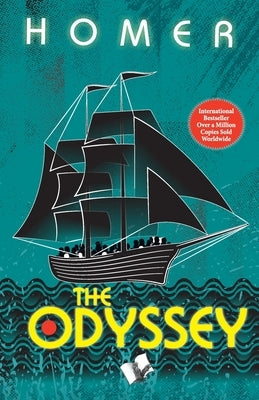Before you leave...
Take 20% off your first order
20% off
Enter the code below at checkout to get 20% off your first order
Discover summer reading lists for all ages & interests!
Find Your Next Read

One of Greek mythology's oldest epic poems, the Odyssey follows one of Greek mythology's cheekiest, wiliest heroes, Odysseus, the King of Ithaca - also known as Ulysses - and his journey back from Troy after the Trojan War. The book begins with the perspective of his son, Telemachus, and wife, Penelope, who assume him dead when he doesn't return for a long time. When Penelope is hounded by suitors, Telemachus is visited by the goddess of wisdom, Athena. As a result, he decides to set out to find his father. Odysseus's journey home, on the other hand, is fraught with dangers including sea sirens, nymphs, and monsters. However, being the intelligent and cunning man that he is, Odysseus deftly navigates through all of these hindrances in his quest to get home.
The Odyssey was written in Homeric Greek and is divided into 24 books, but has considerably fewer lines than the Illiad. It comprises more than 12,000 lines of poetry, and is still a formidable epic that explores various themes, including journeys, homecoming, and friendship.
Many translations of this epic poem have been made over the years but Samuel Butler's prose translation in English gives it a twist when he makes the argument that the Odyssey was written by a woman, which he discusses in detail in his other work, The Authoress of Odyssey. Written in the late 17th century, these two works reflect Butler's belief that the rules that dictate poetry and prose are different and a translator has to keep these in mind if they have to retain the essence of the original work.
Thanks for subscribing!
This email has been registered!
Take 20% off your first order
Enter the code below at checkout to get 20% off your first order